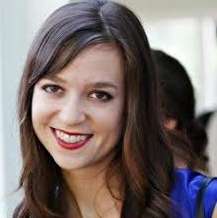On the first day of spring in the southern hemisphere, the magnificent Teatro Colón in Buenos Aires welcomed a full house of opera goers, eager to check out the production of Falstaff. While a visit to the opulent theater is always a treat, witnessing a production of Verdi’s comic gem, starring Ambrogio Maestri, the world’s primary portrayer of the pompous knight, is nothing short of pure indulgence. Unfortunately, one singer does not an opera make, and other key elements of the production could have done with a bit of sweetening.
Falstaff, loosely based on Shakespeare’s tale of the Merry Wives of Windsor, was Verdi’s last opus, completed in his 80th year. The piece, considered the composer’s only time-tested comedy, has a long-standing relationship with Buenos Aires. Just months after its successful premiere in Milan at La Scala in 1893, it made its way across the Atlantic to the newly inaugurated Teatro Colón. Year after year the production stayed in repertory, and even today, audiences can’t seem to get enough of the wayward protagonist and his endearing adversaries.
This performance was the fourth in a brief, five-show run that opened the operatic season. Under the baton of conductor Roberto Paternostro, the Teatro Colón Orchestra was deft, handling the quick tempo changes with apparent ease. The singing was top-notch, the staging and set design were nothing to write home about. Mexico City-born director Arturo Gama was in charge of the staging, and given his history as a dancer before turning to stage direction, I was left wondering what had happened to his sense of spatial relations. Characters were often left to their own devices, singing in place with minimal interaction. In the final scene where members of the chorus were present, the action was confined to confusing clumps, coming across as haphazard. The sets, designed by Juan Carlos Greco, also left much to be desired. The opera opens in the Garter Inn, where Falstaff and his churlish henchmen – played by the droll Juan Borha (Bardolfo) and Gustavo Gilbert (Pistola) are attempting to dodge paying a bill. However, the typical environs of luxury were replaced by stark plywood walls, their monotony only broken by an industrial metal staircase in the center of the stage. Greco seemed to be going for early-1990’s surrealism – the garden was represented by oversized muted pastel leaf panels; walls were painted brilliant blue and dotted with cartoon-like clouds, like the background of a Salvador Dalí painting. Still, the concept fell flat.
Fortunately, the superb singing of a talented cast of soloists made up for many of the shortcomings. As Falstaff, Ambrogio Maestri would likely be at ease in any treatment of the opera. As they say, practice makes perfect. The singer celebrated his 200th performance in the role last year in a stunning production by Robert Carsen at the Metropolitan Opera in New York, and shows no sign of slowing down. In this production, we caught our first glimpse of the disheveled cavaliere perched a pile of dirty pillows, dressed in the tattered garments of once-upon-a-time royalty. Clumps of red curly hair clung to his head in patches, rendering him as a 19th century Bozo the clown. Maestri is adept at adding personality and character to each word he utters, yet the quality of his rich baritone is never compromised. This production marked his debut at Teatro Colón and the audience seemed appreciative of his portrayal of the laughable conniver and genuine vocal skills – excited titters and scattered claps filled the house during the pause after his arietta in Act 1.
Barbara Frittoli, who also made her debut at Colón in this production, stole the show as a charismatic and occasionally downright cheeky Alice. Her shimmering soprano hit the mark note after note, while her acting skills injected the two-act piece with pizazz. The other three ladies, united in their plot to dupe the egoistic Falstaff, all held their own, creating a quartet which supplied the opera with some of its most memorable moments. Elisabetta Fiorillo leant her robust mezzo to the comic role of Ms. Quickly, while Guadalupe Barrientos brought a colorful luster to the role of Meg. Fabián Veloz in the role of jealous husband, Ford brought an expressive baritone and formidable acting skills to the table, and seemed to be a favorite with the audience. The young lovers – Nanetta played by Paula Almerares and Fenton by Emanuele D’Auguanno – added a breath of fresh air to the roles, despite D’Aguanno’s questionable intonation during the second act cavatina.
At the end of the production, the cast shed their traditional garments in favor of modern clothing underneath. As they reminded us, he who laughs last, laughs best.




